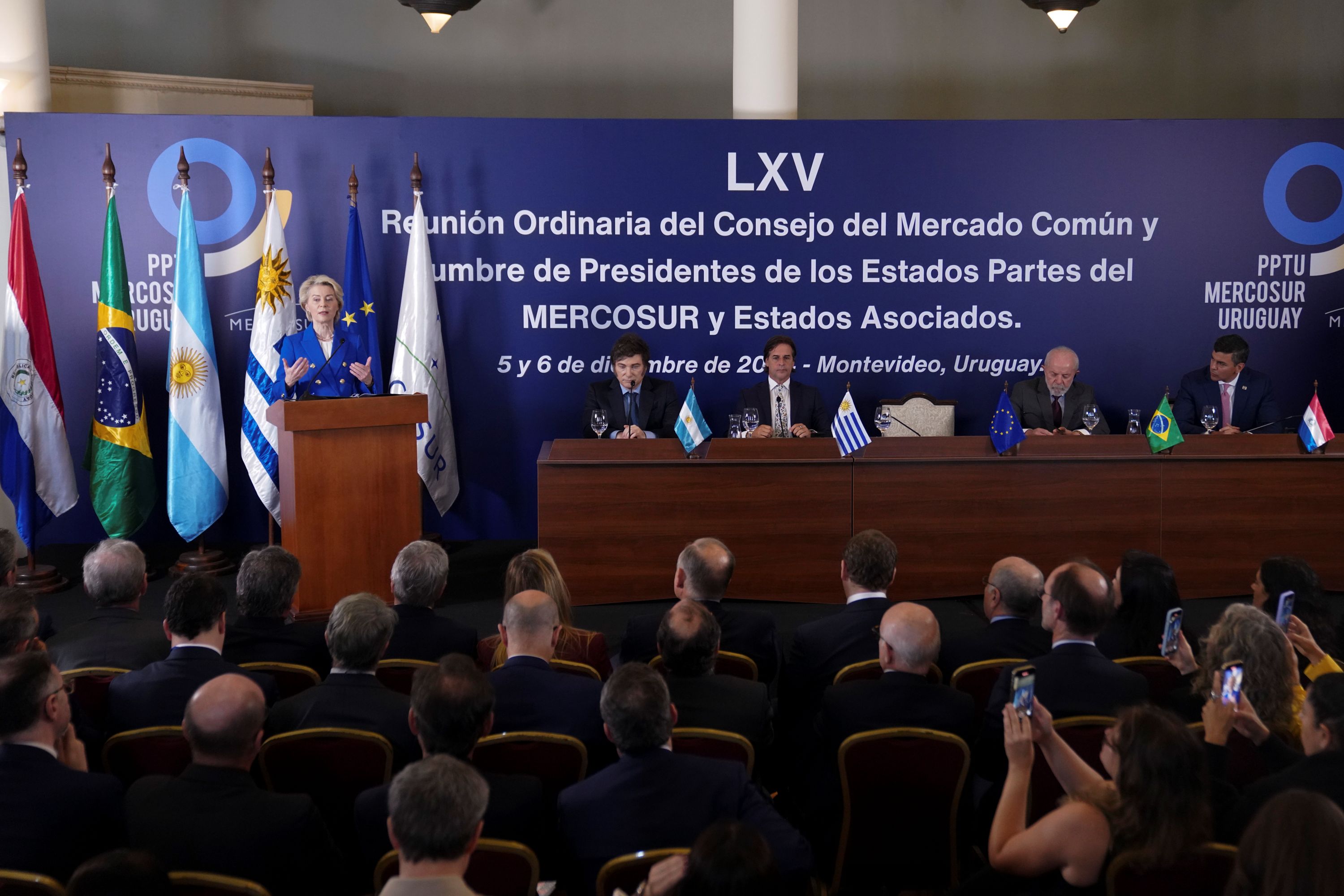
MONTEVIDEO – Uruguayan President Luis Lacalle Pou and European Commission President Ursula von der Leyen confirmed Friday the completion of negotiations for a trade agreement between the Southern Common Market (Mercosur) and the European Union.
During the 65th Mercosur Summit (Argentina, Brazil, Paraguay and Uruguay) and Associated States, which is held Friday in Montevideo, Lacalle Pou stated that an agreement of this nature "is not a solution, it is an opportunity”.
Exercising the temporary presidency of Mercosur, the Uruguayan president noted that the speed of progress would depend on the will of each country, emphasizing that it must proceed with "small, but secure" steps in the same direction.
ALSO READ: French farmers back on the streets as Mercosur talks fuel discontent
Lacalle Pou spoke on behalf of the other founding members of the South American bloc: Javier Milei (Argentina), Luiz Inacio Lula da Silva (Brazil), and Santiago Pena (Paraguay).
Meanwhile, von der Leyen expressed the "success" of the negotiations, calling it an "ambitious" deal that sends a "clear and powerful message to the world" by demonstrating that democracies can support each other mutually.
"Today is truly a historic milestone, and allow me to thank the chief negotiators for their dedication and determination," von der Leyen said.
"This agreement is not just an economic opportunity; it is a political necessity. We are partners with shared mindsets and common roots," she added, speaking at the Mercosur headquarters.
Mercosur and the European Union had initially reached an agreement in 2019, but it was never ratified and had to be renegotiated.
The agreement still requires ratification by the parties involved, including the parliaments of the four founding Mercosur countries. However, it faces resistance from some European nations, led by France, which fear that the influx of agricultural products from South American countries could negatively impact their own agricultural sectors.
The deal would create a market of more than 700 million people, making it the largest free trade area in the world.
Mercosur expects to export more food products such as beef and soybeans, while the European Union aims to increase shipments of cars and machinery.
Uruguayan Foreign Minister Omar Paganini explained that the agreement allows Mercosur countries to eliminate 70 percent of tariffs on exportable products such as industrial oils, fish, fruits, vegetables, and infusions.
For Paganini, the trade pact also opens opportunities for European investments in Mercosur as part of value chains.
READ MORE: EU unveils Budapest Declaration to boost European competitiveness
Due to challenges in securing parliamentary approval in the European Union, the agreement has been divided into two parts: an Association Agreement with three pillars and an Interim Trade Treaty as the commercial pillar.
The trade agreement will be approved more quickly than the Association Agreement, as it falls within the exclusive competence of the European Union, requiring only adoption by the EU institutions and its Parliament.
The Association Agreement, on the other hand, is a mixed-competence agreement and must be approved not only by EU institutions but also by the national and regional parliaments of each member state.


